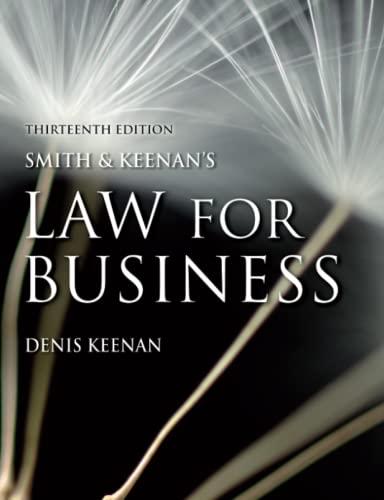Question
CHARLES FRIED: You see how this is different from Rose, the cow, or the two ships, Peerless? In all three of these cases, Rose, Peerless,
- CHARLES FRIED: You see how this is different from Rose, the cow, or the two
- ships, Peerless?
- In all three of these cases, Rose, Peerless, and Krell v. Henry,
- things did not turn out the way the parties had expected.
- In the case of Rose and Peerless, they had been different
- all along at the very inception of the agreement
- when the agreement was originally reached.
- In this case, things went wrong afterwards.
- They might not have.
- And then there would have been no problem.
- But they did.
- Since the procession was the evident presupposition of this contract,
- and the processions were canceled-- and of course, it
- wasn't the fault of either Krell or Henry that they didn't take place--
- the deal is off.
- This is like the case of mistake, because, after all, the parties could
- have put into the contract, "this is a contract
- to view the procession on these two days, and if there is no procession,
- I don't have to pay you the money."
- They could have put that in there.
- They didn't think of it.
- Nobody thought that the King would get sick
- and that there would be no procession.
- Just like the parties could have said, we are selling Rose for $80.
- I don't know whether she's pregnant or not.
- I want Rose.
- And I, Walker, don't know whether she is pregnant or not.
- I think she isn't.
- And I'm going to sell her to you either way.
- They could have put in the contract, "This
- is a contract for Rose, pregnant or not, sterile or not."
- They could have done that.
- But they didn't think of it.
- So in all three cases, what we have is the court dealing with a contingency
- that the parties had not thought of.
- And as we have seen in all three cases, if both sides of the deal
- are equally innocent, if both sides of the deal
- were equally unfocused on the contingency, which in the end
- sank the bargain, then the court is willing to call the whole thing off.
- Remember, that Henry had paid 25 pounds down.
- And just as Krell is suing Henry for the remaining 50 pounds and lost,
- Henry sued Krell to get is 25 pounds back.
- The English court in 1903 took the notion of letting the loss
- lie where it falls very literally.
- Krell lost.
- He couldn't get his remaining 50 pounds from Henry.
- But Henry lost money too.
- Henry wisely withdrew his claim to get the 25 pounds back.
- I say wisely, because the court, though it
- noted that it didn't need to reach the issue,
- suggested that it wouldn't have given him his 25 pounds back.
- It was just going to stop the clock at the moment
- where the frustrating event became evident,
- and the losses would lie where they fell.
- Krell would lose his claim to the final 50 pounds.
- But Henry, having already paid, lost his 25 pounds.
- He'd have to swallow that.
- Modern American courts might well give Henry his 25 pounds back.
- Just as in Rose's case, the seller got to keep Rose.
- But if the buyer had paid anything down, he, the buyer, would get that back.
- And that's because modern American courts
- see these cases of mistake on one hand, and frustration and impossibility
- on the other as very similar, which they are.
- In the frustration impossibility cases, there was also a basic mistake.
- The mistake was in assuming that the very thing which went wrong
- would not go wrong.
- End of transcript. Skip to the start.
Let's say that you are someone like Henry, and you want to get yourself out of a deal like the one with Krell. Which of the following elements seem necessary to prove frustration, allowing you to? Mark all answers that you think are needed.You must select all 4 correct answers to get this problem right.
(Select 4)
1.The party claiming frustration is not at fault in causing the frustrating event
2.Neither party has begun to perform his or her responsibilities under the contract (that is, neither side has started working to keep up its side of the bargaineverything is still yet to be performed)
3.The contract contains no language that addresses what happens should the frustrating event occur
4.Both parties did not think that the frustrating event would happen when making their contract, or at least did not account for it
5.Neither party was aware that the doctrine of frustration could be used later to discharge his or her responsibilities when making the original contract
6.The frustrating event has a material effect on how the parties' deal would turn out, as compared to how they thought it would turn out (that is, it changes things substantially, more than just something slight)
Step by Step Solution
There are 3 Steps involved in it
Step: 1

Get Instant Access to Expert-Tailored Solutions
See step-by-step solutions with expert insights and AI powered tools for academic success
Step: 2

Step: 3

Ace Your Homework with AI
Get the answers you need in no time with our AI-driven, step-by-step assistance
Get Started


